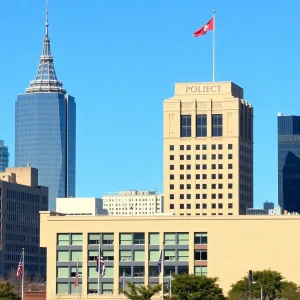Duke Selects Power Line Path Through Spartanburg Amidst Local Opposition
Spartanburg Residents Prepare for a Fight
As Duke Energy gears up to carve a path through the pastoral landscape that has been a home to familial history, cherished childhood memories and agricultural livelihoods for generations, the residents of the rustic community of Green Pond in Spartanburg are bracing themselves for a battle. The conflict lines were established in early July when Duke announced their plan for the Big Ferguson Transmission Line that will connect the existing Sock Hill substation on S.C. 290 to a proposed substation on S.C. 101 between Woodruff and Reidville.
Selection of the Route
The choice of the route came in the aftermath of an elaborate process that sought input from property owners and accounted for the natural and cultural resources of the area, current activity on each property and several other factors. To establish the power line, Duke will construct towers along a 68-foot-wide strip cutting miles across the countryside. In the upcoming weeks, the company will reach out to the property holders impacted by the project in order to survey their plots prior to negotiating an easement. The acquisition of the property is estimated to be completed by the end of 2025.
Impact on Local Community
Rhonda Drummond Cox, one of the landowners whose property lies in the projected path of the new power line, voiced her concerns, “It would be heartbreaking and tragic if our land is destroyed by Duke…They’re invading our property, our history, and changing it forever.”. The newly planned transmission line passes mostly over the peripheries of individual properties, impacting 26 owners in total in an attempt to moderate the impact on any specific property.
Looming Environmental Impact
Residents also raised concerns about potential environmental impacts. Kathleen Mason, a local whose family has owned land in Green Pond since the 1850s, expressed concerns about the effect of Duke’s herbicides on the local wildlife and cattle, as well as the potential for damage to underground springs. Nevertheless, Duke assured that they would work in tandem with each property owner to identify these natural resources in order to minimize impact and that the herbicides they use are safe.
Strong Opposition and Legal Struggles
Duke Energy frames the project as necessary to handle increasing energy demand in the area due to significant growth. However, locals assert that the sparse population of the farm country isn’t the source of increased demand and argue that Duke Energy is choosing their community due to cheaper land costs. If necessary, Duke might resort to employing eminent domain to secure access, leading to potential court battles. Rodney Neal, President of Green Pond Rural Alliance, a group formed by locals in response to the project, confirmed that they are prepared to fight the power line project via the public service commission and, if necessary, take it to court. As the battle lines are drawn, this small rural community is showcasing its determination and strength in the face of corporate might.







